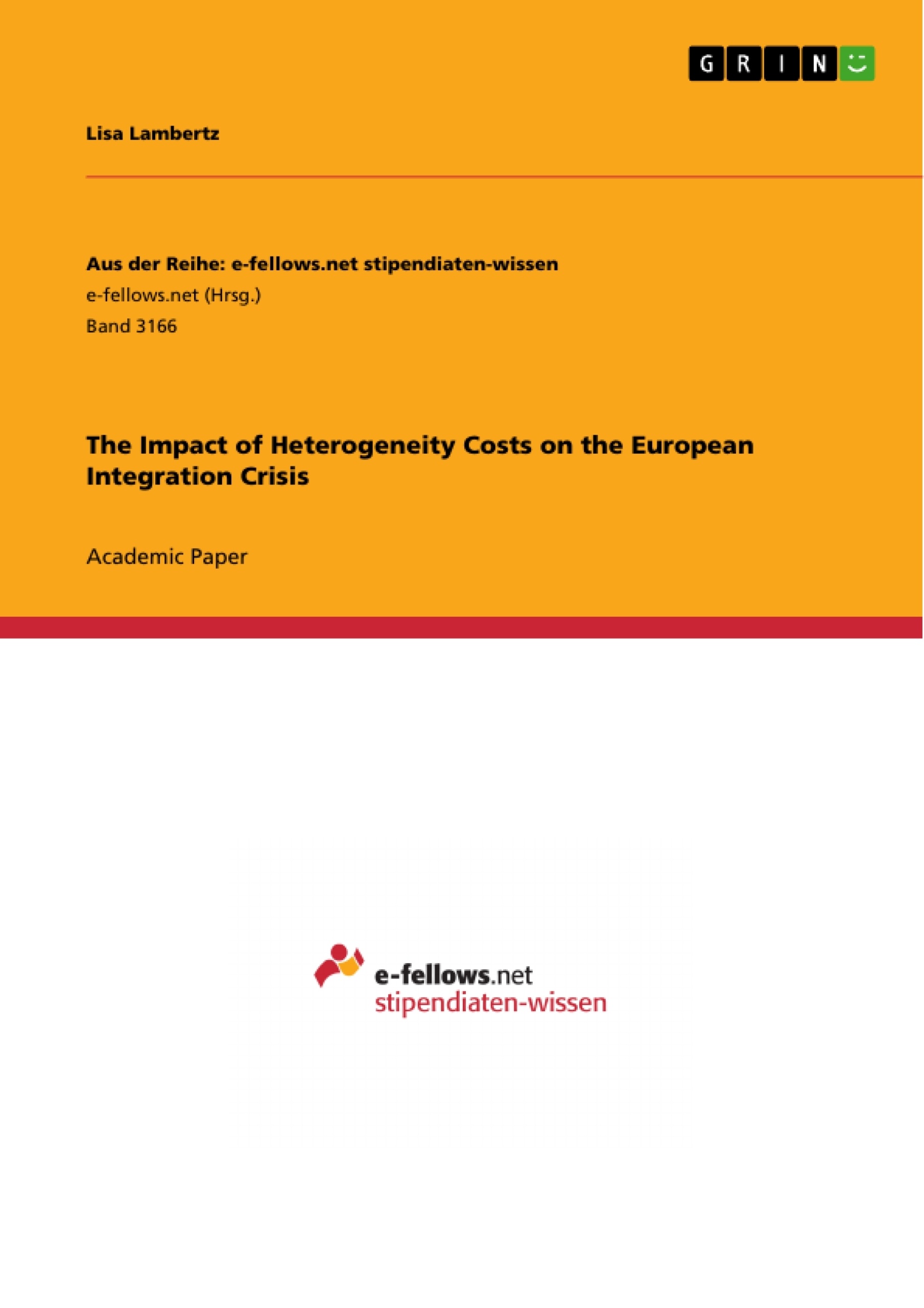After the first half of the 20th century, Europe had already witnessed two world wars, which were the result of frequent conflicts among European neighbours. At that point in time, political leaders such as Konrad Adenauer, Jean Monnet and Robert Schuman envision a united and peaceful European Union (hereafter called EU). European integration begins timid in 1950 with the European Coal and Steel Agreement to permanently consolidate European countries economically and politically. In 1957, the Treaty of Rome creates the foundation for the European Economic Community to establish the European Customs Union. In 1993, at the time of its third enlargement, the European States Community is grown to 12 member states and signs the Maastricht Treaty, which leads to the creation of a common currency for most of the European member states. Finally, the single market with "four freedoms of: movement of goods, services, people and money" is completed.
Inhaltsverzeichnis (Table of Contents)
- Introduction
- The European Integration Crisis
- The Functionalist Approach to European Integration
- Eurosceptics
- New populism and Euro-scepticism
- Right-wing populism in north-western and central-eastern Europe
- Left-wing populism in southern Europe
- Globalisation
- Globalisation losers
- Globalisation winners
- Corporate political responsibility
- Social Legitimacy of supranational EU bodies
- Conclusion
Zielsetzung und Themenschwerpunkte (Objectives and Key Themes)
This paper analyzes the European Integration crisis and its major influencing factor - heterogeneity costs. It explores the functionalist approach to European integration and its limitations in the face of these costs. Additionally, the paper examines the rise of Euroscepticism and populism, linking it to national political history and the refugee and financial crises. Furthermore, it delves into the impact of globalization on European nations, highlighting winners and losers, and ultimately evaluates the force of heterogeneity costs on the social legitimacy of the EU.Key Themes:
- European Integration Crisis
- Heterogeneity Costs
- Functionalist Approach to European Integration
- Euroscepticism and Populism
- Globalisation and its impact on European nations
Zusammenfassung der Kapitel (Chapter Summaries)
Introduction
This chapter provides an overview of the European Integration process, highlighting key milestones and challenges. It introduces the concept of heterogeneity costs, which are identified as a major factor contributing to the current European Integration crisis.The European Integration Crisis
This chapter delves into the European Integration crisis, examining the functionalist approach to European integration as a framework for understanding the process. It explores the tensions between supranational institutions and national governments, highlighting the role of heterogeneity costs in exacerbating these tensions.Eurosceptics
This chapter focuses on the rise of Euroscepticism and its connection to new populism. It discusses the shared concerns of left and right-wing populist movements, particularly regarding immigration, globalization, and domestic elites. The chapter also explores the increasing popularity of populist parties across Europe.Globalisation
This chapter analyzes the impact of globalization on European nations, identifying both winners and losers. It examines the concept of corporate political responsibility in the context of globalization.Schlüsselwörter (Keywords)
This paper focuses on the European Integration crisis, heterogeneity costs, functionalist approach to European integration, Euroscepticism, populism, globalization, and the social legitimacy of the EU. It examines the impact of these factors on the future of European integration.Frequently Asked Questions
What are "heterogeneity costs" in the context of the EU?
Heterogeneity costs refer to the political and economic friction caused by the diverse interests, cultures, and economic levels of the different EU member states.
How does the functionalist approach explain European integration?
The functionalist approach suggests that integration in specific technical or economic areas will naturally "spill over" into political integration, though this is currently challenged by the crisis.
What is the link between Euroscepticism and populism?
The paper examines how both right-wing and left-wing populist movements use Eurosceptic rhetoric to criticize globalization, immigration, and supranational governance.
Who are the winners and losers of globalization in Europe?
Globalization creates a divide between those who benefit from open markets and mobility (winners) and those who face job insecurity and cultural anxiety (losers), fueling political tensions.
What impacts the social legitimacy of the EU?
The social legitimacy is weakened when citizens feel that supranational bodies ignore national identities or fail to manage crises like the refugee or financial crisis effectively.
- Quote paper
- Lisa Lambertz (Author), 2017, The Impact of Heterogeneity Costs on the European Integration Crisis, Munich, GRIN Verlag, https://www.hausarbeiten.de/document/489720


